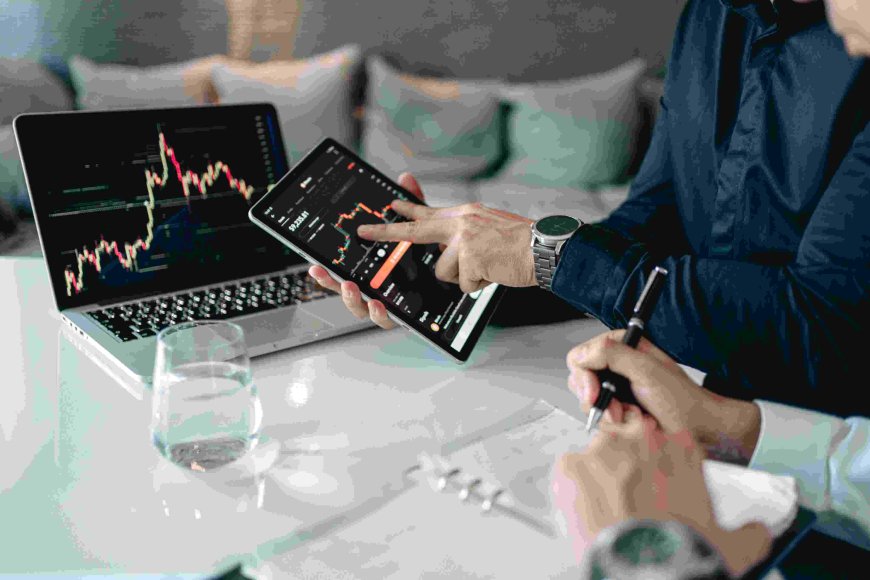Everything You Should Know About Social Trading
Social trading is a great method to consider when investing-- Know more about it below!

Have you ever heard of social trading and wondered what it is, how it works and just simply what it’s all about in a nutshell? If so, then you’re in the right place. In this article, we’ll be diving into social trading from its concept, platform, benefits and many more.
But before we start, social trading is basically, a method of investing. This method allows traders and investors to watch over and mimic the trading behaviours of other experienced investors. For you to better understand what social trading is, below is a rundown of everything a starting trader like you should know:
What is the concept of social trading?
For its concept, social trading is the fusion of social media principles with traditional financial trading. In a setting akin to a community, it allows traders to exchange tactics, trading ideas, and performance indicators with one another, encouraging cooperation and education.
Through increased openness and the ability for new traders to gain knowledge from the experiences of more experienced traders, this interactive method democratises access to market data.
What are good platforms for social trading?
Many platforms are well-liked for social trading; they all have special features and a vibrant community where traders exchange trading tactics and insights. The top social trading platforms are as follows:
-
Zulutrade - Users of this site can mimic and replicate the trading tactics of high-performing traders as it links investors and traders. It provides a rating system and sophisticated performance analytics.
-
Tradeo - Tradeo combines social networking elements with trading, enabling users to trade alongside one another, exchange insights, and have real-time strategy discussions.
-
Ayondo - With Ayondo, users may follow and mimic the trades of experienced traders and access instructional resources in one seamless package that combines traditional trading services with social trading.
-
eToro - Users of eToro, one of the most popular social trading networks, may engage in conversations, mimic the moves of profitable traders, and monitor market movements.
-
NAGA - You may duplicate deals, communicate with other traders, and access a range of financial instruments using NAGA's all-inclusive social trading experience.
What are the benefits of social trading?
Social trading offers several benefits, making it an attractive option for both novice and experienced traders. Here are some of the key advantages:
-
Access to Expertise - Without requiring in-depth market knowledge, novice traders may absorb ideas and learn from the experience of more seasoned and successful traders by copying and following their techniques.
-
Transparency - Several social trading platforms provide traders with historical data and comprehensive performance analytics, enabling users to make well-informed selections based on verifiable performance and actual track records.
-
Diversification - Users can broaden their portfolios and perhaps lower risk by following many traders using various techniques. This increases the likelihood of attaining more steady results.
-
Community Support - Social trading systems let traders create an encouraging environment for learning and growth by fostering a community-like atmosphere where they can exchange ideas, talk about techniques, and offer feedback.
-
Educational Value - Social trading offers traders a practical learning environment where they can see and comprehend various trading strategies, tactics, and market behaviours in real-time.
What are the risk factors involved in social trading?
Although social trading has many advantages, there are several hazards that traders need to be aware of. The following are some of the main risk factors linked to social trading:
-
Market Risk - Social trading is vulnerable to market risks, including as volatility, shifts in the economy, and unanticipated occurrences that might result in losses.
-
Dependence on Other Traders - It can be dangerous to rely too much on the methods and choices of other traders, particularly if they make bad choices or go through a slump.
-
Misleading Performance Metrics - Certain platforms might not provide performance numbers that are potentially deceptive since they do not properly account for all the variables that might impact a trader's success, such as market circumstances or risk management strategies.
-
Platform Reliability - There may be hazards related to the social trading platform's stability and security. Trading operations may be impacted and financial losses may arise from platform malfunctions, security lapses, or technical problems.
-
Regulatory Risks - Regulation protections may differ according on the area and platform. Certain platforms could function in regions with laxer rules, which might put traders at greater risk.
What are the best markets for social trading?
The ideal markets for social trading differ according to the objectives and passions of the traders as well as the unique advantages of the platforms. The following are a few of the most well-liked social trading marketplaces:
-
Forex (Foreign Exchange) - The FX market is a well-liked option for social trading as it is one of the biggest and most liquid marketplaces globally.
-
Stocks - On social trading platforms, equity trading is very popular since it enables users to trade company shares and emulate the stock-picking techniques of seasoned traders.
-
Indices - Investing in indices, which are a collection of companies from a specific industry or market, can provide exposure to wider market trends.
-
Commodities - In social trade, dealing in commodities like gold, silver, oil, and agricultural goods may be quite profitable. These assets are accessible on sites like eToro and Tradeo and offer diversity.
-
Cryptocurrency - Social trading is drawn to cryptocurrencies because of their large potential profits and volatility.
What's Your Reaction?
 Like
0
Like
0
 Dislike
0
Dislike
0
 Love
0
Love
0
 Funny
0
Funny
0
 Angry
0
Angry
0
 Sad
0
Sad
0
 Wow
0
Wow
0























































